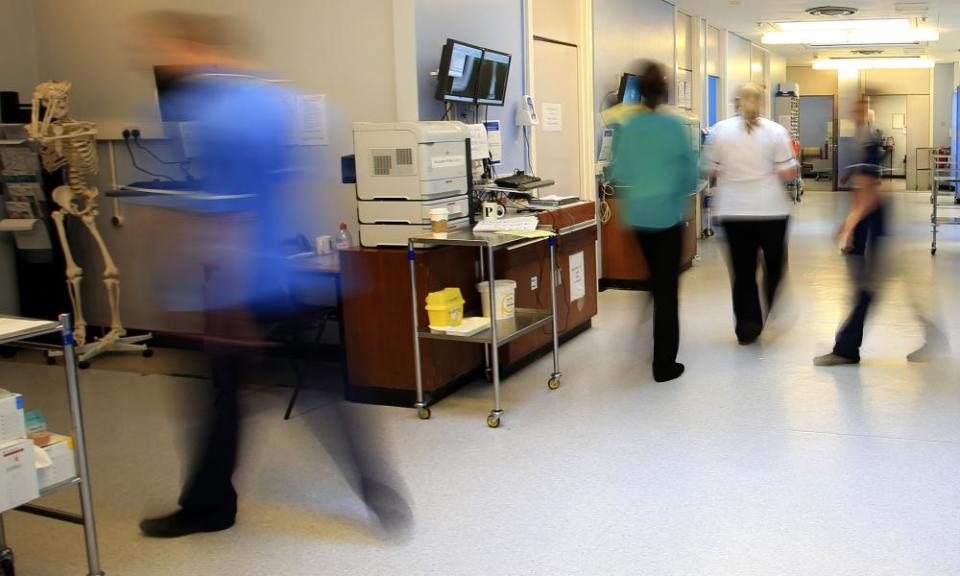The Guardian view on NHS spending: what’s enough? | Editorial

The chancellor knew that the cash he announced for NHS England in Wednesday’s budget fell well short of the demand for an extra £4bn next year which was made by the NHS boss Simon Stevens a fortnight ago. Philip Hammond did find £1.6bn for 2018-19, along with £337m to ease pressures this winter, and £900m for 2019-20; taken together they mean he has honoured the manifesto pledge to increase per capita funding year on year. All the same, the health service in England faces the toughest decade in its history.
But other public services are faring much worse. The difference is that – unlike, say, schools or social care or social security, none of which received any real boost in the budget – NHS England has quasi-independence from government, thanks to the ill-considered Lansley reforms. Mr Stevens has drawn the lines for a very public debate over the right level of health service spending. In an illuminating parallel, the SNP minority government in Edinburgh is deciding whether to use its powers to raise income tax, partly to boost health spending in Scotland by £500m plus inflation.
The opening salvo in the stand-off between NHS England and Downing Street came in a speech at the start of the month, when Mr Stevens challenged the government to make good on the Brexit promise of £350m a week. Otherwise, he warned – targeting areas of care favoured by Theresa May – improvements promised in mental health and cancer services would be unavoidably delayed.
The response (trailed by an acerbic tweet suggesting it was time for him to retire, from Nick Macpherson, the former permanent secretary to the Treasury) came in Mr Hammond’s round of interviews last Sunday. He insisted the government had provided the extra funding requested but Mr Stevens had yet to deliver the reforms and efficiencies he had promised in the Five Year Forward View. Mr Stevens can rightly argue that the NHS has to pick up the pieces from the government’s failure to create a properly funded social care system; the IFS estimates there will be a shortfall of £21bn in health funding by the end of this parliament. But it is clear that he has run out of road with the government. He might have the health secretary, Jeremy Hunt, on his side, but he has signally failed to persuade either the prime minister or the chancellor out of their view that the health service is a bottomless pit that sucks in taxpayers’ money without return.
Mr Stevens does, however, have heavyweight backing from the leading health policy thinktanks – who made the argument for an extra £4bn of funding in the first place – and his colleagues on the NHS England board. Its chairman, Sir Malcolm Grant, and the national medical director, Sir Bruce Keogh, have both responded critically to the budget announcement. The board is to meet privately on Friday to plan its next moves. Expect more to emerge at its public meeting next week. Sir Malcolm is talking about the board “leading the discussion” about what can be delivered for patients.
The best outcome would be a sensible debate about whether the country should spend more of its GDP on health than it does now (slightly below the OECD average per person). The prime minister and chancellor had the chance to spell out their side of that argument this week, and failed. Now there is a risk of a bad tempered fact-blizzard that fails to engage those who ultimately pay the bills. A Scottish decision to raise income tax to fund more health spending would help to make the case in Westminster. It could matter for the whole UK.

 Yahoo News
Yahoo News 